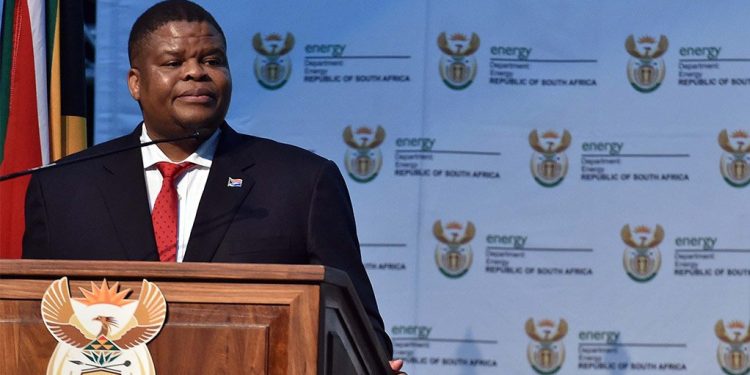By Staff Writer: South Africa’s Water and Sanitation Deputy Minister, David Mahlobo, has expressed his satisfaction with the quality of the ongoing maintenance operations at the Lesotho Highlands Water Project (LHWP) tunnel system, which began in October 2024.
Mahlobo made the remarks following an inspection of the maintenance efforts in Clarens, Free State, alongside Deputy Minister Sello Seitlholo.
The maintenance operation, a collaborative effort between the Trans Caledon Tunnel Authority (TCTA) and the Lesotho Highlands Development Agency (LHDA), started after the closure of the tunnel system on 1 October 2024.
The TCTA is responsible for the maintenance of Delivery Tunnel North in South Africa, while the LHDA is focusing on the transfer tunnels at the Muela hydro power station in Lesotho.
Mahlobo commended the TCTA for its diligent work, praising the quality and precision of the maintenance since the tunnel’s shutdown.
He emphasized the technical expertise required to maintain such a sophisticated and complex system, acknowledging that the project’s success relies on continuous care and attention to detail.
“This is a very sophisticated system, and the quality of the work done so far shows the high level of skill and technology involved.
The maintenance is crucial to extending the life span of this infrastructure, which serves millions of people across both South Africa and Lesotho,” Mahlobo stated.
The LHWP has long been a symbol of effective cross-border collaboration. Mahlobo highlighted the positive outcomes of this trans-boundary project, particularly the shared water resources between South Africa and Lesotho.
He noted that such cooperation is rare globally, where water-sharing often leads to conflict. “This is an example of how two nations can work together to ensure sustainable water supply for millions of people, something that is vital for peace and development,” Mahlobo said.
The Deputy Minister also underscored the significant benefits the LHWP brings to both countries.
“In Lesotho, the hydro power station provides clean energy, while in South Africa, the water supports various sectors, including domestic use, agriculture, and industry, benefiting over 13 million people in multiple provinces,” he explained.
Mahlobo reaffirmed the government’s ongoing support for municipalities affected by the LHWP and called for continued vigilance in maintaining the system. The LHWP maintenance, which began in October 2024, is set to be completed by 31 March 2025.




